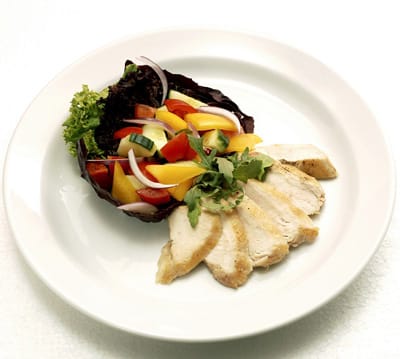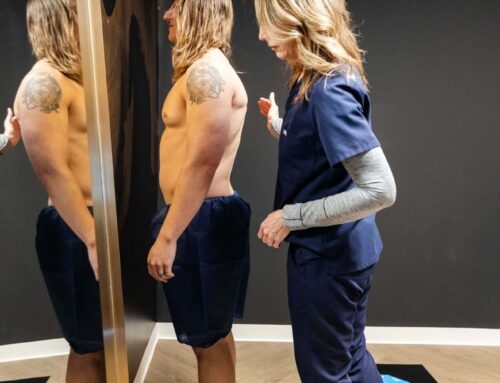
A very important part of weight loss and a fitter life is eating clean and eating right. You may have heard the trend in the news about “eating clean,” but what does that mean? Should you be washing your food? Seriously, what is everyone talking about?
Defining Eating Clean
Fortunately, eating clean is not about strict diets, unrealistic eating habits, and depriving yourself of the food you love to eat. It’s about eating healthy, having more energy, and stabilizing your mood and general wellbeing.
Eating clean is a simple idea: it’s about paying attention to what you’re eating. Knowing where your foodcomes from and what processes it has gone through before reaching your plate is important for all of us, and the fewer steps from farm the table, the more “clean” it is.
The objective with eating clean is to eat food that is real and fresh, food that is unprocessed or minimally processed, unrefined, and minimally handled, making what you put in your body as close to its natural form as possible.
How Most of Us Are Eating Now
It’s a scary but true fact that most of the food the average American eats every day is processed, refined, and made in a laboratory. This “food” is packed with artificial flavors, refined sugars, and preservatives to make it look better and last longer—at the cost of removing many of the inherent benefits and nutrients.
So what makes a food processed? This term can be defined as any food that has been altered from its natural form in some way, either for safety reasons or convenience. While not all processed foods are inherently unhealthy, they certainly aren’t natural. And they could contain added salt, sugar, or fat.
If you think that making food at home, from scratch, is a better way to eat clean… well, you’re partially correct. Even homemade recipes often include processed foods, such as flour, cheese, or bacon (yes, beloved bacon is processed).
So eating clean is not about getting rid of all processed foods, since that would mean living as an Amish person, which would be pretty challenging. It’s about being aware of what you’re eating, striving to eat more clean foods than processed foods, and knowing what can happen to your body when you overindulge in processed treats.
A lot of ultra-processed food has been linked to cancer, infertility, and cardiac issues. And don’t forget that processed food loses many of its nutrients, which are important for your body’s wellbeing.
Benefits of Eating Clean
You know that too much of a good thing is a bad thing, and while that box of cookies or bag of chips looks delicious, neither contributes to a healthy diet and certainly neither is labeled as eating clean. But they’re yummy, so why would you change your diet?
Knowing what you’re putting into your body, while minimizing processed and unnatural foods, can prevent long-term diseases such as high blood pressure, cardiac issues, diabetes, and cancer. An improved diet will also help you lose weight, avoid obesity, and stay energetic. As a bonus, eating clean canstrengthen your immune system, making you less susceptible to infections.
How to Eat Clean
If you’re diligent, it’s not impossible to improve your diet—and your health, in the process. When at the grocery, load up on fresh produce and grass-fed meats, eggs, and dairy. At home, know what you’re putting into your recipes and on your plate. Eliminate added sugar, salt, and fat. And, of course, drink lots and lots of water.
It is important to always read the ingredients. Yes, you should be the person standing in the aisle pouring over each item you pick up. If you can’t pronounce something, it’s probably best to avoid it. And look to avoid preservatives (remember that sugar and salt are used as preservatives).
When preparing meals, it’s best to have a blend of raw and cooked items to get all of the different nutrients your body needs. Fruits, vegetables, meats, dairy, eggs, and nuts are excellent foundations for your life. If you’re a bread eater, try sprouted grains to stay as close to nature as possible.
A simple checklist to eating clean:
- Avoid processed foods
- Eliminate refined and added sugars
- Control your portions and eat moderately
- Eat small meals throughout the day
- Cook your own meals
- Avoid high-fat cooking methods
- Include all food groups in your diet
- Eat a combination of raw and cooked food
CoolSculpting Isn’t Processed Either!
If you’re endeavoring to eat clean, it may surprise you that CoolSculpting fits perfectly into your lifestyle. The process is not invasive; instead, an applicator is applied to a targeted body section and the excess fat is frozen. Then, naturally, that frozen, dead fat is flushed from your body over the course of the next month or two.
So if you’re eating clean, working out, and still plagued by the negative effects of menopause, for instance, consider CoolSculpting. We might even give you an organic apple to munch on while you’re in your treatment.
Take a look at some of our before-and after pictures to see how we’ve helped others and can help you too!






